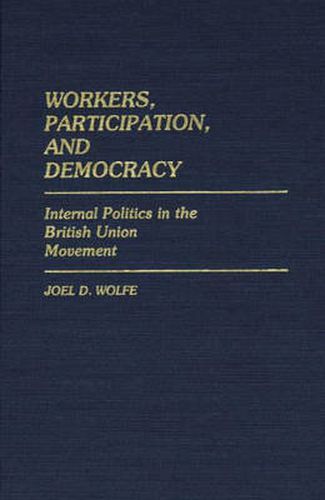Readings Newsletter
Become a Readings Member to make your shopping experience even easier.
Sign in or sign up for free!
You’re not far away from qualifying for FREE standard shipping within Australia
You’ve qualified for FREE standard shipping within Australia
The cart is loading…






In this study of the British labor movement, Joel Wolfe asks whether participatory democracy is possible in modern large-scale union and party organizations and how rank and file members can exercise control of delegates in the face of constraints imposed by formal bureaucratic structures at all levels. In addressing these questions he formulates a theory of participatory democracy that has broad practical application to contemporary democratic practice in industiral and political organizations. He tests his model through an analysis of the policy-making process in the British labor movement during World War I, examining thoroughly and critically direct democracy in wartime work groups, the impact of these groups on policy-making in critical areas, and their influence on decision-makers in the Trades Union Congress and the British Labor Party.
$9.00 standard shipping within Australia
FREE standard shipping within Australia for orders over $100.00
Express & International shipping calculated at checkout
In this study of the British labor movement, Joel Wolfe asks whether participatory democracy is possible in modern large-scale union and party organizations and how rank and file members can exercise control of delegates in the face of constraints imposed by formal bureaucratic structures at all levels. In addressing these questions he formulates a theory of participatory democracy that has broad practical application to contemporary democratic practice in industiral and political organizations. He tests his model through an analysis of the policy-making process in the British labor movement during World War I, examining thoroughly and critically direct democracy in wartime work groups, the impact of these groups on policy-making in critical areas, and their influence on decision-makers in the Trades Union Congress and the British Labor Party.